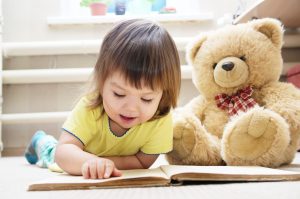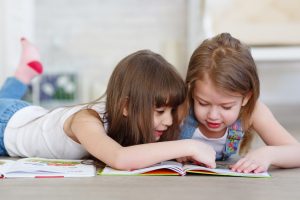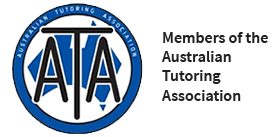Early literacy fundamentals
Learning to read is perhaps the most important educational achievement. It is a complex process that unlike language, does not come naturally to children.
Children must have mastered many developmental skills before they become fluent readers. Learning Works Geelong created this guide for you so you can understand the processes involved as your child learns to read, write and spell in the early years.
Reading is so critical to success in our society that failing to read well in early childhood creates both problems at school and in later life. There is a strong relationship between early reading success and school failure.
For this reason, Learning Works believes early reading education and intervention is essential so your child will have the best chance at success throughout their education and into later life.
Early literacy (2-5 years old)
Learning to read starts in infancy
Many early experiences help your child prepare for reading. By the time they start school, thousands of hours of ‘reading experience’ has been clocked up.
In fact, the language experiences that your child develops since almost the moment of birth shape language development and their future reading success.
There is considerable evidence that a home and early education environment that values and encourages literacy provides the foundation for advanced reading and writing.
The more familiar your child is with language structures such as how to ask questions and use tenses, the more likely it is that your child will be able to read fluently in the future.
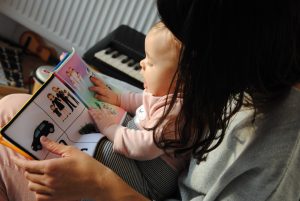
Encouraging Early Literacy
Sound awareness – Rhyming and songs
Many young children enjoy rhyming games and songs. This means they are beginning to have an awareness of the features of the English language and are developing important early phonological skills.
There is an extensive body of research showing that children who enjoy rhyming do much better at reading.
Playing games like ‘I spy’ will help your child realise that words start with particular sounds, a critically important skill when they start reading and writing. When you say to a small child “I spy with my little eye, something beginning with M,” your child’s brain is registering that sounds match with certain squiggles on a page and things in their environment.
Teaching and practising nursery rhymes, jingles and speech rhymes will set your child up for acquiring language.
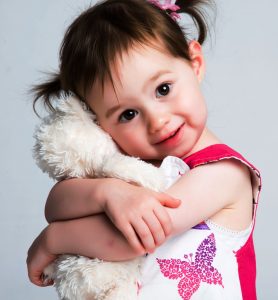
Teach your child to love books
Young children are like sponges and absorb a lot from their early experiences. When parents, grandparents and preschool teachers read to them, children begin to understand that the print means something to the people reading. They have a magic skill of ‘reading!’ – modelling the value of books encourages their desire to explore language in more depth.
At this stage, your child will see whole words as pictures. They recognise letters almost like adults recognise logos – but they are memorising shapes at this stage, rather than understanding that letter shapes go with particular sounds.
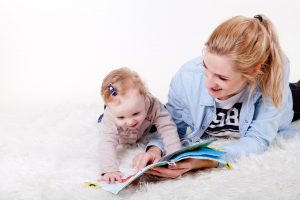
How to help with your child’s language development
- Involve your child in lots of talking and listening
- Ask your child lots of questions to encourage your child to talk and express ideas
- Use new words in conversations and explain what they mean
- Play word and listening games to build vocabulary
- Show your child how to hold a book, where to start
- Model the value of reading and writing in everyday life – write notes, read books and magazines, make shopping lists
Language Development
The early language experiences that children develop since almost the moment of birth shape language development. A home environment that encourages literacy provides the foundation for reading and writing. The more familiar your child is with language structures such as how to ask questions and use tenses, the more likely it is that that your child will be able to read fluently in the future.
There is a strong relationship between language difficulties and school failure. The greater the spoken language, the better chance of rapid reading development and comprehension.
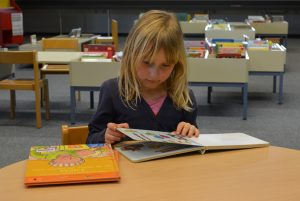
School language
In order to read, children need to have a broad vocabulary and knowledge of language or they will not have the background to become a reader. When they make the transition from home to school they need to use spoken language for a new range of purposes – such as telling stories, asking questions, following instructions and learning to communicate more clearly with others.
Most of the words young children hear and use are words they already know. There is a big jump between the sort of language children are exposed to at school compared to their home environment.
Your child must learn to move from informal face-to-face communication on familiar topics to more abstract language. At school, there is a demand for sophisticated and literate language.
Literate language consists of complex sentences with a number of linked ideas. Literate language involves discussing specific topics. E.g. What does the word fragile mean? What is the first word you hear in the word hippopotamus?
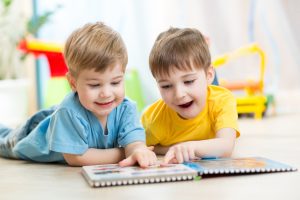
Language milestones at 5 Years
By the time they reach school, your child should be able to:
- Recall part of a story
- Speak sentences of more than five words
- Use future tense
- Tell longer stories
- Say their name and address
- Name familiar items within their environment
- Talk to peers and adults about familiar objects
- Ask and answer simple questions
- Respond to simple instruction
- Listen to, and participate in, stories, rhymes and songs
- Know that words, not pictures, tell the story
- Know what letters and words are
- Know how to handle a book – knows that we read from left to right.
- Begin to link letters with sounds. E.g. M says “mmm”
Becoming a Reader – Kinder to Prep

What can I do to get my child off to a good start for reading success before they go to school?
Read to your child daily. Children become readers on the laps of their parents.
Spend 5-10 minutes each day reading to your child. Short and colourful picture books are ideal for children so they can look at the visuals while you tell them the story.
Make story time an enjoyable time that you spend together and that your child looks forward to, so they learn to value reading and associate it with relaxing time with you.
Young children are like sponges and absorb a lot from their early experiences. When parents, grandparents and preschool teachers read to them, children begin to understand that the print means something to the people reading. They have a magic skill of ‘reading!’ – modelling the value of books encourages their desire to explore language in more depth.
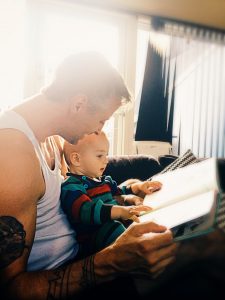
Sing nursery rhymes together
Many young children enjoy rhyming games and songs. This means they are beginning to have an awareness of the features of the English language and are developing important early phonological skills. There is an extensive body of research showing that children who enjoy rhyming do much better at reading. (Adam, 1990; Burns, Griffin & Snow, 1999).
Playing games like ‘I spy’ helps children realise that words start with particular sounds, a critically important skill when they start reading and writing. When a parent says to a small child “I spy with my little eye, something beginning with M,” the child’s brain is registering that sounds match with certain squiggles on a page and things in their environment. Teaching and practising nursery rhymes, jingles and speech rhymes will set your child up for language acquisition success.

Teach your child about print and books
- Show your child how to hold a book, where to start and that we read from left to right
- Point out logos and text in the environment, such as street names, the police station or McDonalds.
- Create a book with your child. Engage in a craft activity using their own drawings. You can add in text according to the story your child makes up.
- Ensure your child has access to writing materials and paper so they can practise their motor skills and can experiment with drawing, which will pave the way for writing.
Involve your child in lots of talking and listening.
- Involve your child in lots of talking and listening
- Ask your child lots of questions to encourage your child to talk and express ideas
- Use new words in conversations and explain what they mean
- Play word and listening games to build vocabulary
- Show your child how to hold a book, where to start and that we read from left to right
- Model the value of reading and writing in everyday life – write notes, read books and magazines, make shopping lists
- Ask open ended questions to encourage your child to talk and express ideas
Happy Reading!
Need some extra help?
Learning Works Geelong offers literacy (phonics) programs to help preschool children enter school with confidence, while they transition from pre-school to their first day in prep.
Read more about our school readiness program
Our program is play-based and teaches children to love learning, reduce anxiety around starting school, become confident and happy in the classroom and reach their full potential.
Plus, we promise serious fun for little people!
We believe every child to have access to education and the support they need in the early years.
